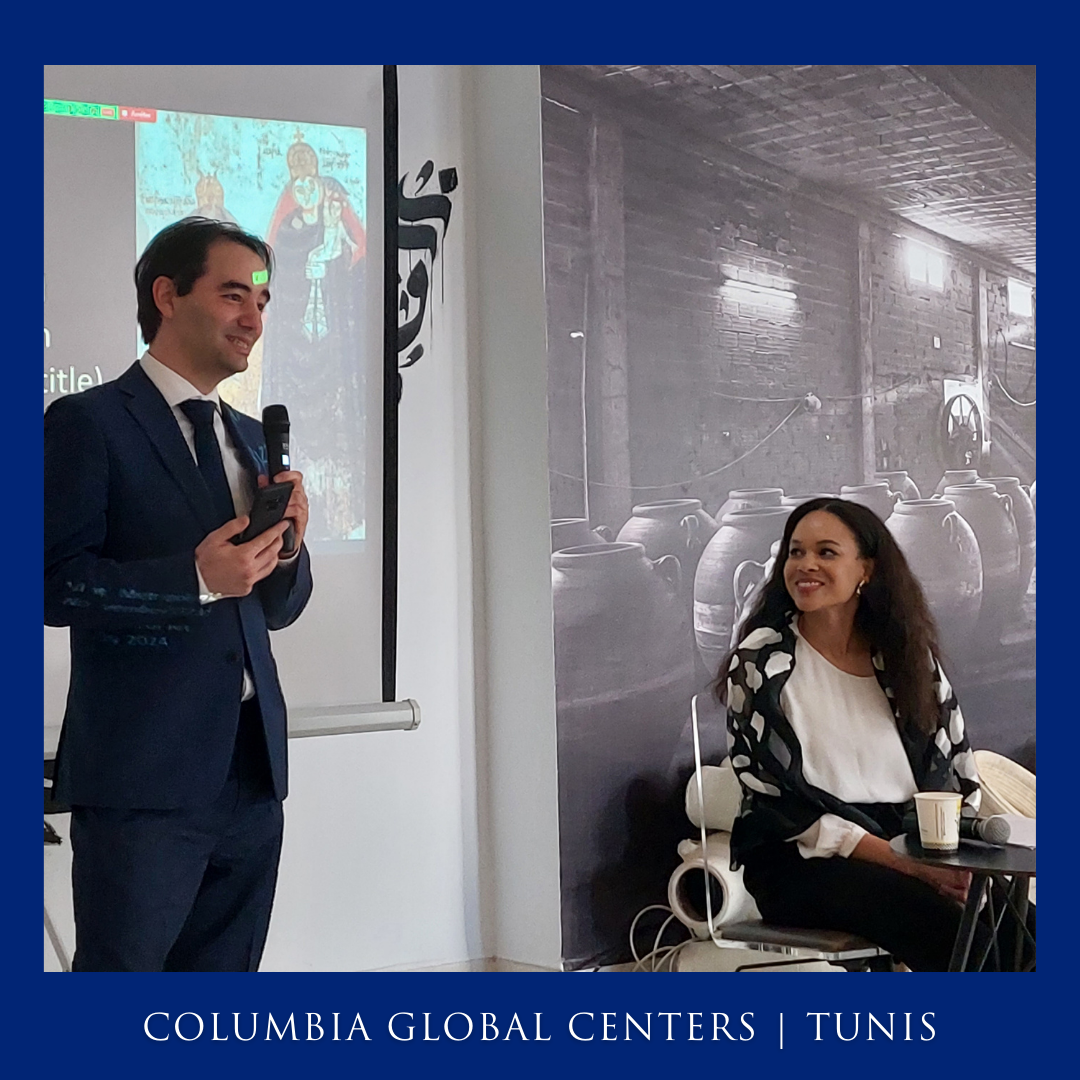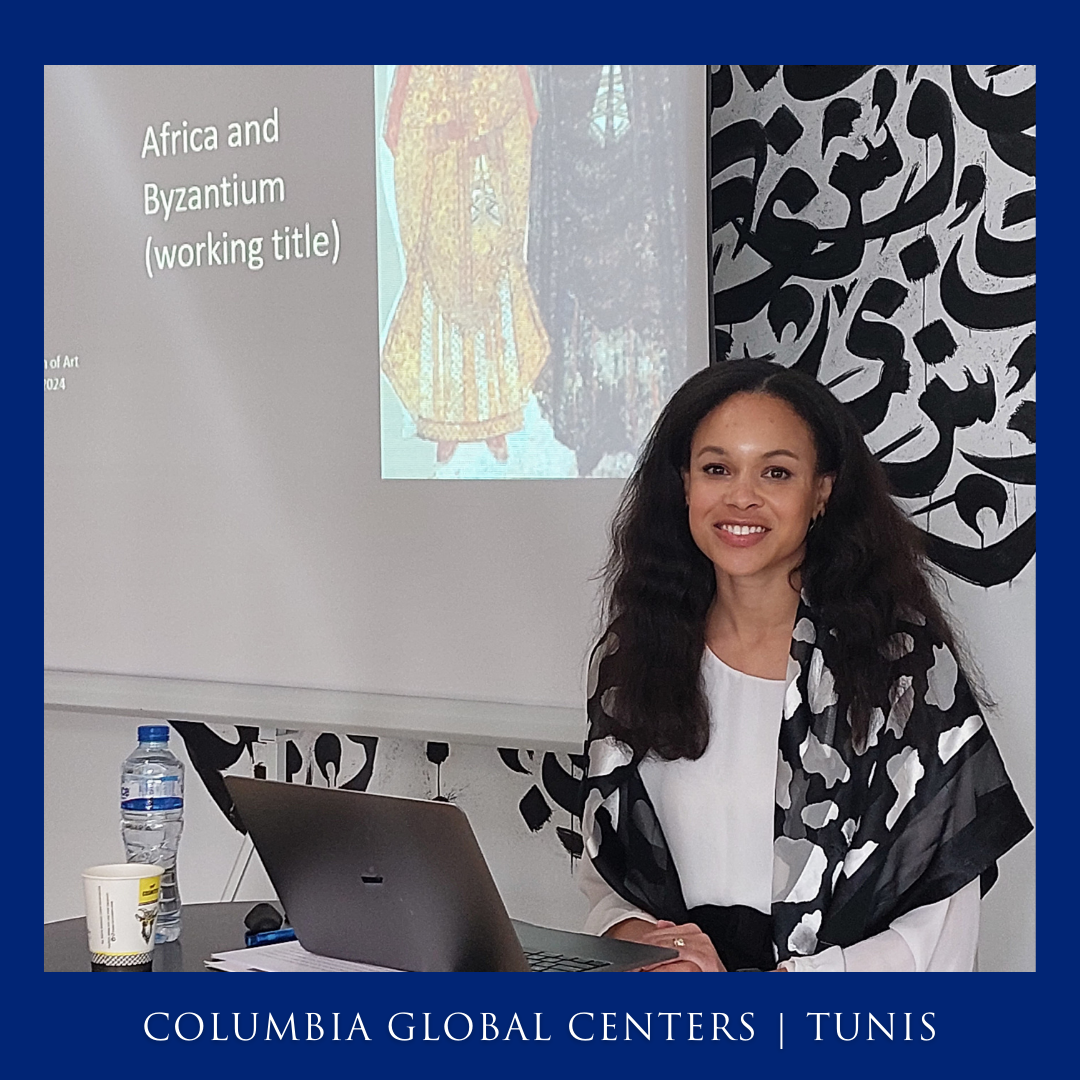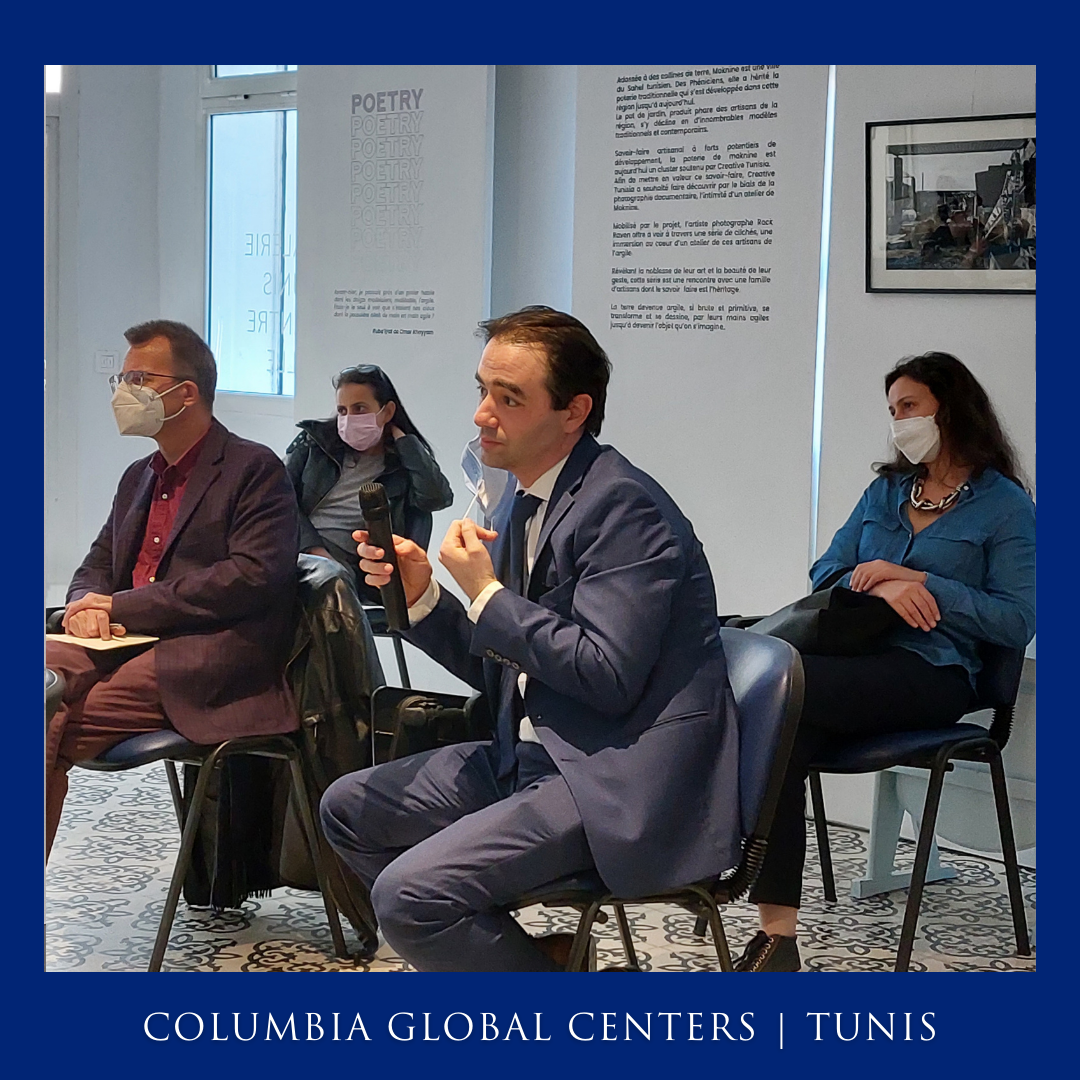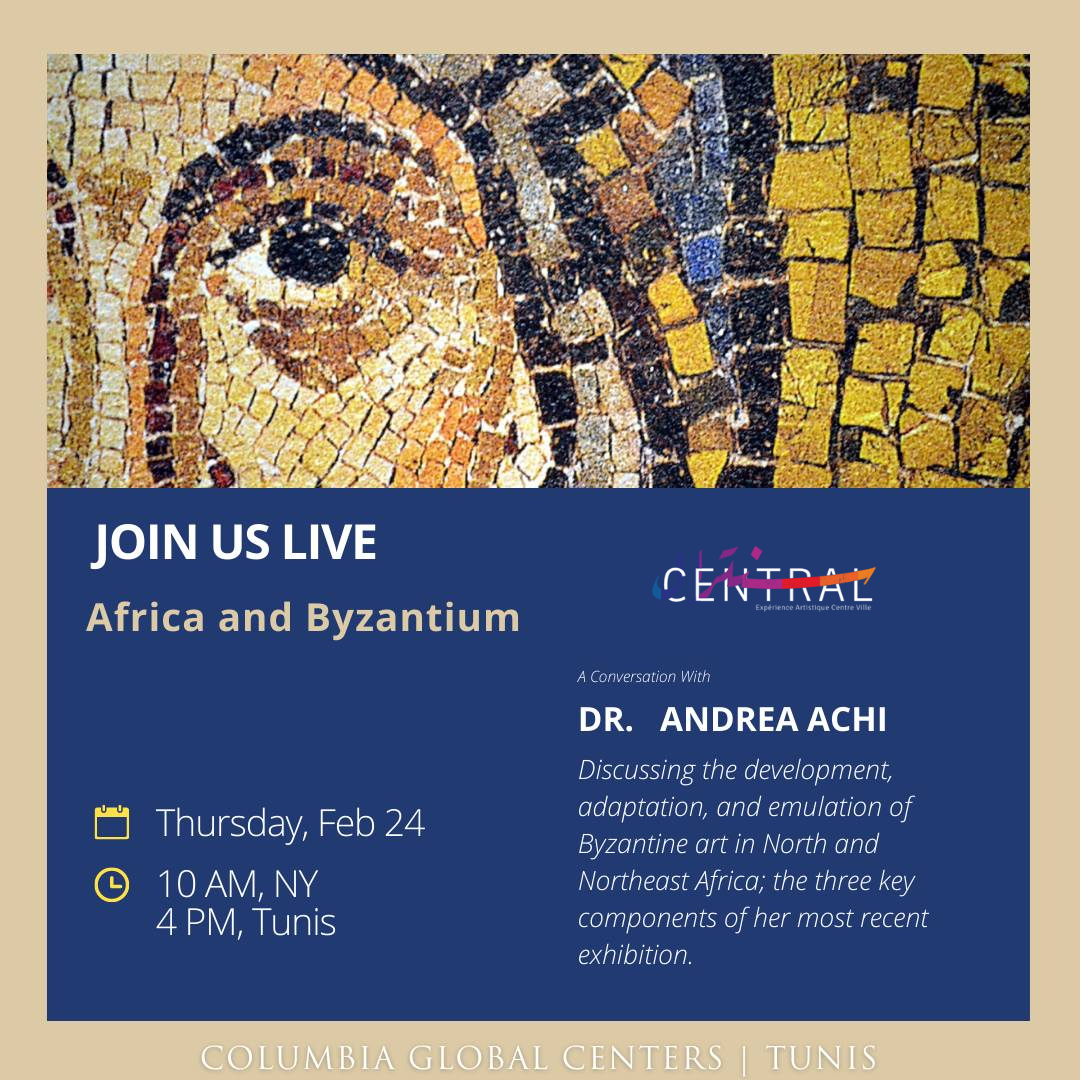Building on The Metropolitan Museum of Art’s groundbreaking exhibitions exploring the interactions of artistic cultures of Byzantium and its surrounding regions, Dr. Achi’s lecture "Africa and Byzantium" was linked to her most recent exhibition and it showcased translations of Byzantine art by artists working in African regions around the Mediterranean and the Red Sea. These arts attest to connections between far-flung global networks, linking cities on trade routes in sub-Saharan Africa and the Indian Ocean.
The talk featured images of large-scale frescoes and mosaics with luxury goods, metalwork, jewelry, panel paintings, and illuminated manuscripts, dating from the late antique to the present. It focused on several interconnected themes central to the visual arts of the region: trade, monasticism, imperial and episcopal authority, as well as diverse Christianities and ethnicities.
Dr. Achi reiterated the importance of Africa to the Roman Empire and the early Byzantine Empire. She explained that "in classical antiquity, North and Northeast Africa was considered a place of wealth and vibrant history. The regions of Africa were the intellectual and religious centers of the Byzantine world". In fact, the continent contained some of the most prosperous and urbanized Roman, Vandal, and Byzantine provinces. She, therefore, chose to focus her presentation, as well as her exhibition, on African materials, African peoples, trade, wars, and religions, while emphasizing their link to Byzantium.
Our guest speaker concluded her speech by hoping that "the exhibition will shift perceptions on identity and
memory in Africa and what it means to be African. I want the visitor, after walking through
the exhibition, to have a new picture in their mind of both Byzantium and Africa."
This event was organized in partnership with the Columbia Alumni Association, Tunisia chapter, and Central Tunis.
** Please note that due to a technical problem, a few minutes are missing from the recording. We apologize for the inconvenience **



